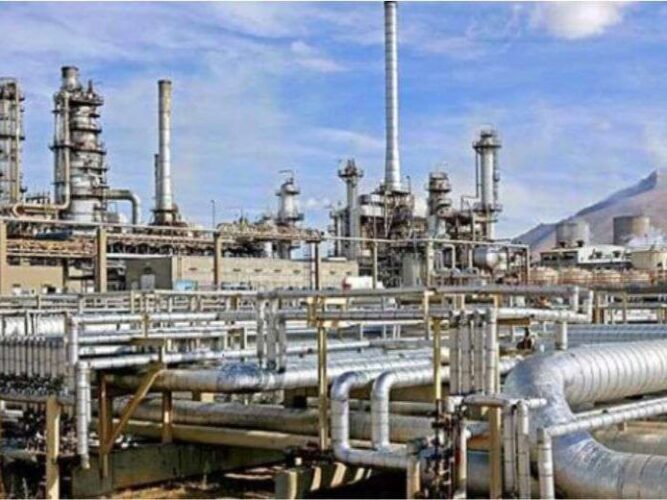The Warri Refining & Petrochemicals Company (WRPC), with a capacity of 125,000 barrels per day, is now operational in Warri, Delta State. This was confirmed by Mele Kyari, Group Chief Executive Officer of the Nigerian National Petroleum Company Limited (NNPCL), during a tour of the facility on Monday.
Addressing the team before the tour, Kyari said, “This plant is running. Although it is not 100 percent complete, we are still in the process. Many people think real things are not possible in this country. We want you to see that this is real.”
He commended the determination of the NNPCL team and contractors for successfully restarting the plant, emphasizing that it demonstrates the possibility of reviving deliberately shut-down facilities. Kyari explained that the plant has three operational stages, with the first stage, known as Area 1, already producing diesel, kerosene, naphtha, and other high-quality products. These products are not only meeting domestic needs but also positioning Nigeria as a potential exporter of petroleum products.
Kyari highlighted the progress in line with the directive from President Bola Tinubu to make all three refineries functional. He stated that the Port Harcourt refinery, with a capacity of 65,000 barrels per day, has already commenced operations, and Area 1 of the Warri refinery is live. He added that efforts are ongoing to bring the Kaduna refinery online, promising that progress will exceed expectations.
The tour included Farouk Ahmed, Chief Executive Officer of the Nigerian Midstream and Downstream Petroleum Regulatory Authority (NMDPRA).
Located in Ekpan, Uwvie, and Ubeji, Warri, the WRPC produces 13,000 metric tons per annum (MTA) of polypropylene and 18,000 MTA of carbon black. Originally commissioned in 1978 and managed by NNPCL, the refinery was designed to serve markets in southern and southwestern Nigeria.
Earlier this year, NNPCL spokesperson Olufemi Soneye indicated that the Warri refinery was scheduled for mechanical completion by the first quarter of 2024. The WRPC joins the Port Harcourt and Kaduna refineries as part of the broader effort to enhance Nigeria’s refining capacity.
This development follows the recent commencement of crude refining at the Port Harcourt refinery, marking significant progress in the revitalization of Nigeria’s petroleum industry.









